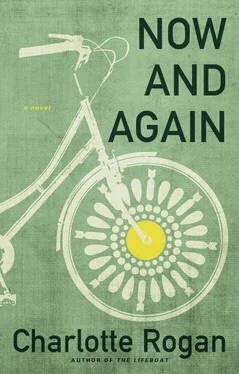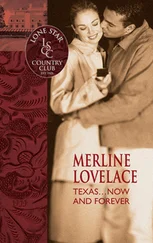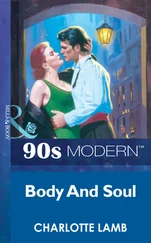“Okay, okay,” said Kelly.
“I walked around like I was king of the world, but I wasn’t king. I wasn’t nothin’, and then I went to prison, and I was less than nothin’. So keep your head down. That’s the way to stay out of trouble.”
But that day in the Bronx, Kelly’s head was up. He was looking around at the other stragglers, who were loaded down with satchels full of books or not loaded down and kind of slinking in the shadows as if they too were deciding whether to go to school or bolt. He was looking at the blinking traffic signal and at the passing cars, at the way the morning sun painted the bricks the color of dried blood and at the cop who was kind of snarling at him and rocking back on his heels with his thumbs stuck in his belt.
“Smile,” Kelly’s mom had told him. “That’s the way to make new friends.”
“You hard of hearing?” asked the cop.
Kelly gave the cop a neutral smile. He didn’t want new friends. He wanted his old ones, but they were back in Wimberley, probably still lolling around in bed because of the time difference.
“Answer me when I ask you a question, boy!”
“I’m lookin’ at you ’cuz you’re lookin’ at me.” Even though it was true, Kelly suspected it was the wrong thing to say.
Kelly’s head was up when he looked at the officer, and it was up when he climbed onto the Toyota and rammed his fist into the air the way Tommie Smith and John Carlos had done at the Summer Olympics in Mexico City the same year the Reverend King was assassinated in Memphis and Bobby Kennedy was shot in Los Angeles and anti-war activists seized five buildings at Columbia University to prove the people were ready to take their country back, all of which Kelly knew because it was also the year his father was born, and his father liked to talk about those things as if his lowly birth to an unwed teenager was part of some grand and inspiring civil rights trend.
In Mexico City, the two track champions had stood shoeless and determined on the podium, fists thrust into the air and heads bowed prayerfully while “The Star-Spangled Banner” played and while the Australian silver medalist stood beside them in silent support for which he was later ostracized at home. But first, Carlos and Smith were evicted from Olympic Village and suspended from the U.S. team. “But they stood up for themselves,” Joe Senior said every time he talked about them. “They stood up for themselves and eventually their medals were returned.” There was a lesson in it, that’s the thing he wanted his children to remember. “What’s the lesson?” Kelly wanted to know. “Justice prevailed,” his father always replied. “Don’t you forget that justice prevailed.”
Kelly heard his mother calling him to come for breakfast and then it was his father, reminding him to vote. “I lost that right when I went to prison, so you have to vote for the both of us,” he was saying. “Every Election Day, you make sure to get up early and exercise your constitutional right.”
For some reason, one of their new neighbors started a rumor that Joe Senior had killed a man back in Texas, which is why he’d come to New York. “It explains a lot of things,” the neighbor would say, and the other neighbors would nod sagely to each other. “That would certainly explain it,” they said.
Kelly preferred to believe his father had been locked up for killing a man than for bungling a robbery, but either way, Joe Senior hadn’t been home much, and then, suddenly, he was. He was home and they were moving across the country for a fresh start and a job. Another story went around that Kelly was the one to throw the rock through the school window. What would you expect from a boy whose father was a killer? They were only rumors, but once a story took hold, it didn’t matter if it was true. So Kelly started to say, “I’ll set my old man on you,” whenever anyone gave him trouble, and whether it was that or the fact that he grew four inches over the course of that first year in New York, no one gave him trouble anymore. He didn’t need his old man to handle things. He could handle them himself.
It was handling things that led to his first night in jail. It was a minor scuffle over a girl that did it, but Joe Senior sat up late, wringing his hands. “They’ll take away your vote if you’re not careful,” he said. “You ain’t a real American if they take away your vote.”
The night in jail had scared Kelly. He had looked out through the bars at the dog-faced deputy and realized something about the world and also about his place in it. But then he had gone back to being angry, and after a couple more years of barely scraping by at school, he had given up and joined the army.
And then his mother called out again, “Joe, honey, I’ve saved two big ol’ pancakes just for you. That’s surely worth waking up for.”
Kelly thought about telling his parents that sleeping was something he hardly ever did these days, but then it seemed not to matter anymore, so he sank back down to the quiet place, the place where the frogs were buried in the silt and the tadpoles slid on their bellies across the stones, smooth as coins, turning inexorably into frogs, their slippery skin evolved through eons of living in water, which surged relentlessly over them, oblivious to all of the life that depended on it in its search for the lowest point.
4.7 Pig Eye
Just as Pig Eye was worrying he was out there alone, Hernandez started gunning the motor of the second Humvee, rocking it out of the ditch and repositioning it up the road, farther away from the insurgents’ hide position. Harraday got his.50-cal. going, and Betts joined in with his M4, holding the triggermen down and forcing them to fire mostly blind, which meant Pig Eye could move more freely. Now you’re talking, he thought. Now they had a fighting chance! He held his breath, fondling the grenade and thinking that if Harraday could keep the Iraqis occupied, he might be able to get close enough to lob it over the wall of the animal enclosure, which would fix the triggermen once and for all.
The plan he settled on was to move twenty or thirty yards back along the ditch before cutting away from the road and making a run to the east side of the enclosure, out of the line of fire. He stuffed some more brush into the loops of wire, hoping to blend in with the landscape and counting on the others to keep the Iraqis busy. Then he bellied along the ditch, cradling the grenade in his hands and every now and then raising his head slightly to check on Tishman, who had gotten Finch back inside the vehicle and was now wrestling with the.50-cal., which seemed to be jammed or broken.
How close should he get before he tossed the grenade? What if his aim was bad and he missed? What if his aim was good, and one of the hostiles caught the grenade and threw it back at him? As he pushed himself nose-first through the dust, Pig Eye thought about all the hours he had spent working through various scenarios, none of them remotely like the one in which he found himself. Danny had been right about the howitzer — that’s the thing he needed now — that or aerial support.
Thirty seconds more, and he’d leave the road. Once he pulled the pin and threw, the grenade’s handle would fly off, releasing a spring that would throw the striker against the percussion cap, igniting the fuse. The fuse would take about four seconds to burn — more or less depending on variables in the design of the device that Pig Eye had no way of assessing. Then the detonator would ignite, setting off the main explosive charge. He imagined the blast wave and the fragments of casing ripping through anything they encountered and, if he was lucky, slicing the hell out of whoever was hiding behind the wall.
Everything was set. The only thing left to do was to run and aim and toss — or it would have been the only thing if one of the triggermen hadn’t peered over the wall and pointed his weapon down the road at a distant puff of dust that signaled a vehicle approaching from the direction they had come. Through the binoculars, Pig Eye made out a small pickup truck, a Toyota HiLux, he guessed. It seemed to be riding low, which meant there were probably people in it, but he couldn’t see any people, only the driver, so there was no way of telling how many others might be hunkered down in the back of the truck and if whoever it was were insurgents or civilians. So far, Harraday and Betts had the triggermen mostly pinned, but a truck full of reinforcements would drastically lower their odds. He calculated the Toyota was three or four klicks away. If it was traveling at forty miles per hour, he would have between three and four minutes to do something that raised their chances of escape. If it was moving more slowly, he would have longer. He refocused the binoculars, which was when he noticed that, in addition to riding very low to the ground, the approaching truck was old and had black temporary plates — all signs that it was filled not with passengers but with explosives.
Читать дальше












